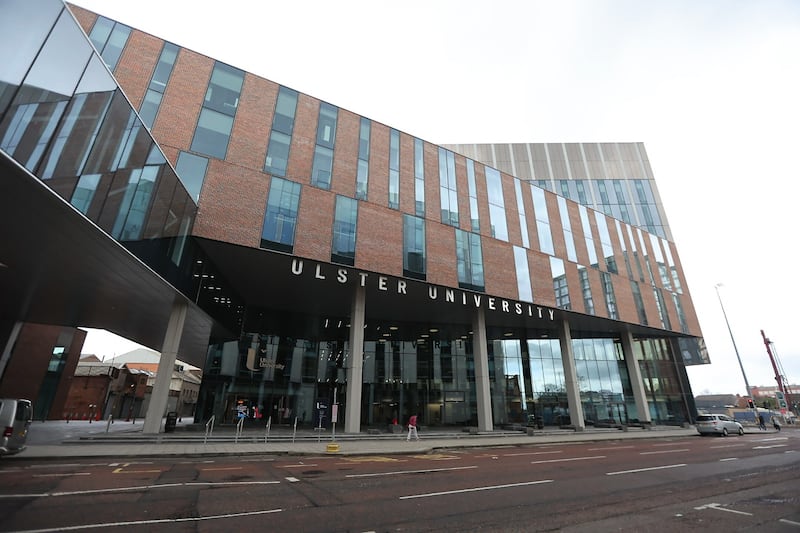It’s an in-joke among academics that while history never repeats itself, historians often do.
Much the same could be said for newspaper columnists. Occasionally we tear away at a juicy bone and won’t let go.
The best newspapers – and I count The Irish News as among that select band – see themselves as campaigners.
And one of the most important things when you are campaigning about something where right is on your side is to never give up.
A journalistic mentor once told me that it’s only when you are getting fed up saying something that the rest of the world is beginning to listen.
And there are countless campaigns over the years where justice was done only because campaigners were obdurate and refused to shut up.
For me, the need for a new approach to the delivery of higher education in the north-west is one of those causes.
And it’s not just about righting a wrong perpetrated some 60 years ago. It is about righting a wrong still being done today, with effects that worsen the lives of people in Derry and the wider region.
What is particularly galling about the current situation is that the status quo is being maintained by a Sinn Féin minister who should know better, presiding over a department which is intent on defending the indefensible because ‘the indefensible’ is a creature of its own creation.
The Department for the Economy will point to the Magee Taskforce as evidence that it is taking a fresh look at things.
But rather than being an independent body, the taskforce is compromised by the presence of Ulster University’s vice-chancellor and deputy vice-chancellor among its members.
Ulster is not neutral. The university’s governing body and senior managers are the authors of a strategy that has seen it invest hundreds of millions in Belfast, and what has happened to Magee over the past half century has happened under UU’s control.
Some argue the north is a small place. A rising tide lifts all ships. Derry will benefit from the investment in higher education – even if that is focused on the north-east.
But ask yourself, over the course of more than a century, when has it ever been the case that Derry has benefited from investment in Belfast?

All the research – and there has been a ton of it – shows that university cities are economically stronger and more resilient than those without them.
They have a significant multiplier effect on employment in their regions – and these jobs tend to pay high wages.
Universities stimulate enterprise and generate start-ups, and they attract inward investment from global companies that want to be based beside places filled with clever people doing ground-breaking research.
Every pound spent in research and development in universities generates two pounds of private cash.
The investment in higher education in Belfast, signed off by Conor Murphy’s department each year, represents a massive public subsidy to the north’s capital – and Derry is paying the price economically, socially and culturally.

That cannot be right. Derry needs an institution whose primary focus is on the betterment of the city and the region.
Murphy needs to recognise that if you keep doing the same things, you will keep getting the same results.
The department’s current strategy appears to be one of giving the impression of action through the taskforce, but within the confines of the current HE structure and within a funding envelope which does not leave much room for manoeuvre because of decisions already made to the detriment of Derry.
Even Murphy’s own taskforce, in its interim report, acknowledged “a legacy of historic failed delivery”.
By the end of this month, it is due to produce a plan to “clarify its expectations” for reaching a target of 10,000 students in Derry.
In my view, that plan should include proposals for the establishment of an independent university in Derry within a fixed timeframe and with a target of 12-15,000 students; the establishment of an arms-length HE funding body responsible for the strategic direction of all higher and further education provision in the north and the allocation of funding for teaching and research; a reshaped portfolio for research and teaching at Queen’s, UU, and the new Derry institution; the strengthening of cross-border structures, ensuring HE benefits from our unique circumstances as an island with one foot in the EU and the other in the UK; and clear targets for widening educational achievement by building clear pathways from nursery to primary to secondary and then tertiary education.
Too many young people are currently excluded from sharing the benefits of learning and personal development.
At the minute – as in so many areas of public life – the executive seems intent on ‘managed decline’.
Derry, in particular, has suffered too long from this attitude. It’s time to stop the rot.
If you have an opinion on the issues raised in this article and would like to submit a Letter to the Editor to be considered for publication, please click here
Letters to the Editor are invited on any subject. They should be authenticated with a full name, address and a daytime telephone number. Pen names are not allowed.




